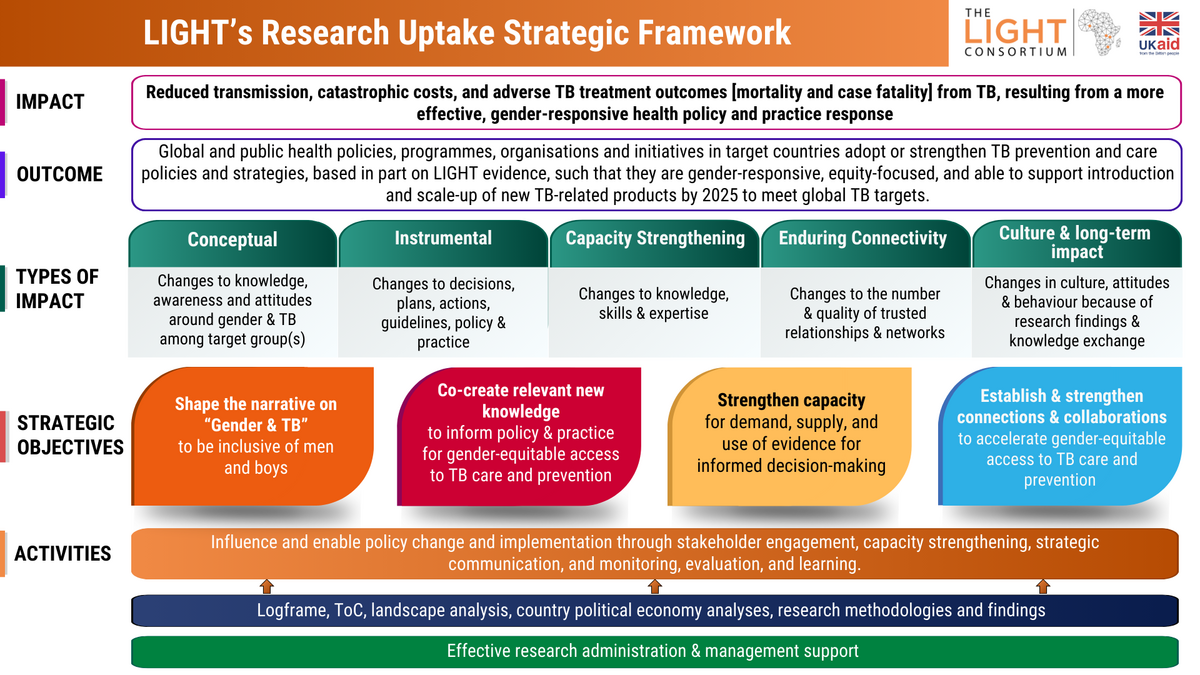The LIGHT’s Research Uptake Strategy outlines a bold agenda for the five-year period, 2021 to 2026. It was developed within the context of the global health agenda and commitments to End TB and is based on the programme’s Logical framework and LIGHT’s theory of change.
LIGHT's Research Uptake Strategy maps a critical path outlining how LIGHT works across the consortium and with stakeholders to ensure that the local to global response is inclusive, impactful and sustainable. The development of this strategy was informed by LIGHT’s landscape analysis, which consisted of three components - conducted within each African partner country:
- Rapid evidence synthesis
- Political economy analysis
- Stakeholders mapping and engagement
All members of the LIGHT consortium are committed to maximising the impact of the research generated by the programme. This strategic approach - led by the research uptake team in consultation with those working on research and management, development, implementation, monitoring and evaluation - aims to enable the uptake and adoption of the research findings by decision-makers to achieve positive development outcomes.
The Research Uptake Strategy is regularly reviewed to ensure it is flexible and responsive to LIGHT’s ongoing engagement, experiences and learnings, while re-assessing our understanding of how change occurs within the contexts we are working in. It is informed by the landscape analysis, which helps provide a clearer understanding of how the changing political, economic, and organisational climates affect the decision-making spaces, policy actors, prevailing narratives, directions for change and windows of opportunity. This approach aims to enhance the impact of our research uptake efforts by enabling us to better identify actions and to frame our engagement and communications to be more effective.
LIGHT aims to maximise impact of new evidence generated by the research programme at the community level, nationally in partner countries, across Africa, and globally. Our strategic approach to stakeholder engagement, capacity strengthening, strategic communications, and monitoring, evaluation and learning will shape the narrative on gender and TB to be inclusive of men and boys. It will also establish and strengthen connections and collaborations and strengthen capacity of key stakeholders and decision-makers to take up research findings to achieve positive development outcomes. Our approach is guided by four mutually reinforcing strategic objectives as illustrated in the RU Strategic Framework figure below.

